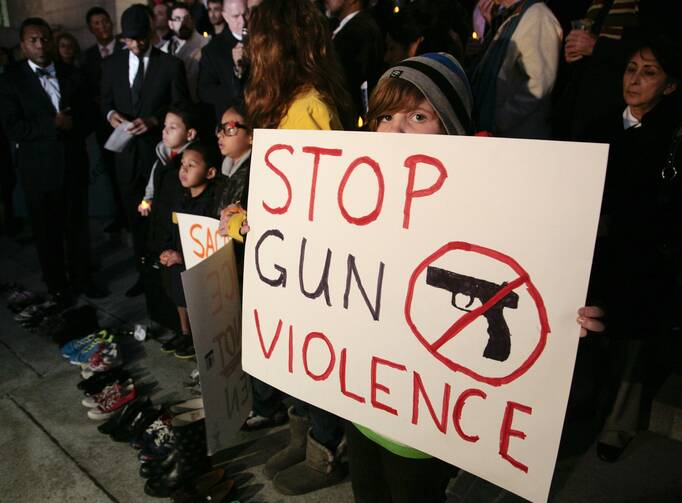PTSD at Home
Post-traumatic stress disorder is widely recognized as a tragic consequence of war, affecting both soldiers and civilian populations. New research, however, shows that individuals living in violent neighborhoods in the United States are just as likely to suffer from the disorder.
On Feb. 3, Lois Beckett reported on the “PTSD crisis that’s being ignored” in ProPublica, a nonprofit organization known for its investigative journalism. In 2011, researchers at Cook County Hospital in Chicago began screening patients in the trauma center for PTSD. They expected to find some cases, but never anticipated the shockingly high rates: over 40 percent of those examined—and more than half of those with gunshot wounds—demonstrated symptoms of PTSD. Other U.S. cities with high rates of poverty and violent crime also suffer from alarming rates of PTSD. In Atlanta, researchers interviewed 8,000 inner-city residents and found that at least a third showed signs of PTSD during their lifetime. The lead investigator called this a “conservative estimate.”
What can be done? Kimberly Joseph, a trauma surgeon at Cook County, proposed that the hospital spend an extra $200,000 each year on staff, but the administration rejected the proposal. The growing problem, however, demands this level of investment in major hospitals. Second, the United States must change the narrative surrounding mental care. In too many places, any diagnosis of mental disability is seen as a mark of shame. We must remember that every person is made in God’s image, and we must heed the Gospel call to tend to the wounded and those in need.
Among Friends
Ten years after its birth in Mark Zuckerberg’s dorm room at Harvard, Facebook has grown well beyond its Ivy League origins. Today the site has 757 million daily users worldwide, 143 million of whom are in the United States or Canada. To put this into perspective, this number is about three-and-a-half times the number of Americans—estimated at 40 million—who read the Bible daily.
It is easy to view these statistics as a sign that our national priorities have gone haywire. But while your aunt’s status update about the latest George Clooney flick or your high school friend’s dimly lit picture of his dinner is not quite as edifying as the word of God, our fascination with the details of our friends’ lives is not necessarily an indication that we are all going to hell in an Instagramed photo of a handbasket.
That Facebook has become an integral part of millions of lives means, of course, that the site can serve as a distraction, but it also offers powerful tools for evangelization and engagement in conversations of faith. Religious-themed Facebook pages consistently rank among the most engaged pages on the site. Religious leaders of all faiths have used pages to promote content that offers moments of encouragement and prayerful encounters with holy texts.
While web-based discussions should never totally replace real-life relationships, Christians must take seriously their interactions on the site. We should use online conversations as opportunities to build up others and to be a positive force among commenters. As Pope Francis suggested in his recent message for World Communications Day, we must see each other not as fellow “users” of technology, but as neighbors—no longer strangers, but friends.
Invest in Whom?
Few will forget how much of the world’s economy has been affected by the financial crisis of recent years and the malfeasance that led to it. Tales of how financial institutions, politicians and governments mishandled our economic well-being are widespread, yet many have become passive about holding them accountable.
New revelations about banks like JPMorgan Chase should cause even the most casual observer of financial news to pause over their morning coffee. Recently the head of JPMorgan, Jamie Dimon, was awarded a 74 percent pay raise for 2013. In addition to his base salary of $1.5 million, he received $18.5 million in stock options. The board of directors explained that the “bonus” was for Mr. Dimon’s leadership during “sustained long-term performance” and “gains in market share and customer satisfaction.”
If that was not enough to disturb, a recent release of emails reveals that JPMorgan hired a family friend of a Chinese regulator apparently in the hope of securing business deals down the road with Chinese corporate clients. U.S. investigators, including the Securities and Exchange Commission, are reviewing the case to see if it violates the Foreign Corrupt Practices Act. Other financial institutions are also under investigation.
What have we learned from these episodes? A bank can pay billions in fines for “lack of proper oversight” and still pay the chief executive a handsome salary and bonus while lowly, hard-working depositors “lend” their money in the vain hope of seeing a return of less than one-half of 1 percent. Such practices may be legal, but they are not ethical—and certainly not just.








